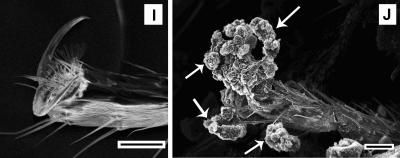SmithKline Beecham's Anticoagulant Argatroban is Now Available in the United States.
SmithKline Beecham (NYSE:SBH) announced today that the anticoagulant Argatroban Injection, recently approved by the U.S. food and Drug Administration (FDA) for the prophylaxis or treatment of thrombosis associated with heparin-induced thrombocytopenia (HIT), is now commercially available in the United States. The company also announced plans to support medical education programs to increase awareness of the underdiagnosed clotting disorder, which if left untreated, can cause serious complications, including death.
"We are pleased to offer Argatroban to the medical community as an effective means for not only treating HIT, but also for preventing serious blood clots that can lead to deep vein thrombosis, myocardial infarction, stroke or even death," said David Stout, president, SmithKline Beecham Pharmaceuticals-N.A. "Furthermore, we are proud to sponsor efforts to increase awareness of this underrecognized but potentially fatal disorder."
Education is the Key to Reducing Serious Complications for Patients Heparin is one of the most commonly used medications in U.S. hospitals. Each year, nearly 12 million Americans are treated with heparin to prevent or treat clotting during or following a surgical or medical procedure. Heparin is prescribed for patients who have a broad range of conditions including coronary artery disease, unstable angina, deep vein thrombosis (DVT), and pulmonary embolism. Although heparin is administered to prevent thrombosis, it can paradoxically result in heparin-induced thrombocytopenia, which is an immune mediated response that can lead to thrombosis. Of the 12 million patients who receive heparin, as many as 360,000 will develop HIT. If left untreated or misdiagnosed, an estimated 120,000 HIT patients will develop a serious thrombotic complication and up to one-third of these patients will die.
HIT is underrecognized and underdiagnosed because its presentation is paradoxical. In patients who develop HIT, the administration of heparin results in antibody formation that simultaneously destroys and activates platelets. The result is a low platelet count in a patient who is experiencing thrombosis.
The purpose of SmithKline Beecham’s educational initiatives is to improve understanding of how to diagnose, prevent and treat HIT. Elements of the educational initiatives will include:
Partnering with a physician organization to develop and promote guidelines for HIT diagnosis and treatment Working with hospitals, medical schools and medical professionals on how to recognize and treat HIT Supporting scientific interchange through sponsorship of continuing medical education activities
"I am pleased to see the emphasis SmithKline Beecham is placing on education," said John Kelton, M.D., professor and chairman, department of medicine, McMaster University, Ontario, Canada. "Developing guidelines will be an important step in helping those medical professionals who have little firsthand experience with the disorder learn to recognize and treat HIT effectively. These educational activities are crucial to increasing awareness of HIT and helping prevent its devastating effects."










































